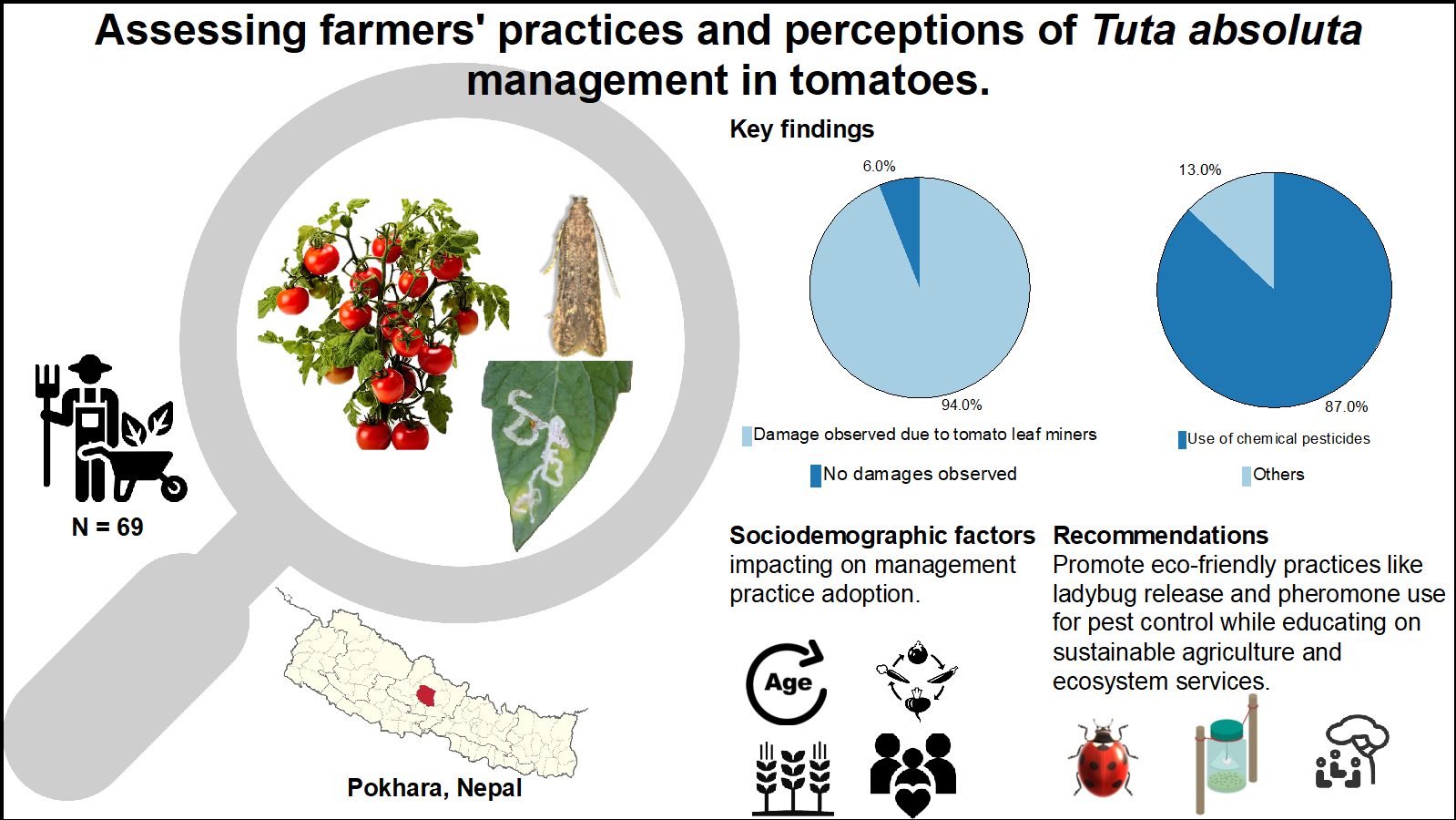Center for Environmental and Sustainable Agricultural Research (CESAR), has published an insightful paper in the Archives of Agriculture and Environmental Science. His research focuses on the management of the tomato leaf miner (Tuta absoluta), a pest that poses a severe threat to tomato cultivation in Pokhara, Nepal.

About the Study
The paper, co-authored by Santosh Kafle (student researcher at CESAR), Aashish Karki and Dr. Prayan Pokharel (one of the advisors at the CESAR), investigates the perceptions and practices of farmers in Pokhara regarding the management of T. absoluta. This pest has been causing significant yield losses, impacting the livelihoods of local farmers. The study surveyed 69 households engaged in tomato farming, using a semi-structured questionnaire to collect data on pest damage, management practices, and awareness of sustainable methods.
Key Findings
The findings of the study are both enlightening and concerning:
· Prevalence of Damage: An overwhelming 94% of farmers reported observing T. absoluta damage in their fields, highlighting the pest's pervasive impact.
· Pesticide Reliance: 86.96% of farmers rely predominantly on chemical pesticides for pest management, despite the potential for resistance development and environmental harm.
· Low Awareness of IPM: Awareness and adoption of environmentally friendly practices, such as Integrated Pest Management (IPM), are notably lacking among the surveyed farmers.
· Use of Pheromones: While 44.93% of farmers utilized pheromones, only 31% recognized their effectiveness, indicating a gap in understanding or effectiveness of application.
· Influencing Factors: Factors such as the age of the household head, cropping systems, and family type significantly influenced the adoption of various pest management practices.
Implications
The study underscores the urgent need to bridge knowledge gaps and promote eco-friendly pest management strategies among farmers in Pokhara. Tailoring extension services to consider sociodemographic factors is crucial for enhancing the adoption of sustainable practices. This research aims to contribute to more effective pest management, ultimately supporting higher tomato yields and improved livelihoods for local farmers.
Conclusion
Santosh Kafle's research is a critical step towards addressing the challenges posed by T. absoluta in Pokhara. By highlighting current practices and areas for improvement, the study provides valuable insights for policymakers, agricultural extension workers, and the farming community. It emphasizes the importance of adopting integrated approaches that combine chemical, physical, and biological control methods for sustainable agriculture.
The full paper, titled Farmers' Perception and Adoption of Management Practices Against Tomato Damage by Tomato Leaf Miner (Tuta absoluta) in Pokhara, Nepal, can be accessed here.
Congratulations
We extend our heartfelt congratulations to Santosh Kafle for his valuable contribution to the field of agricultural research. His work not only enhances our understanding of pest management in Nepal but also paves the way for future research and development in sustainable agriculture.